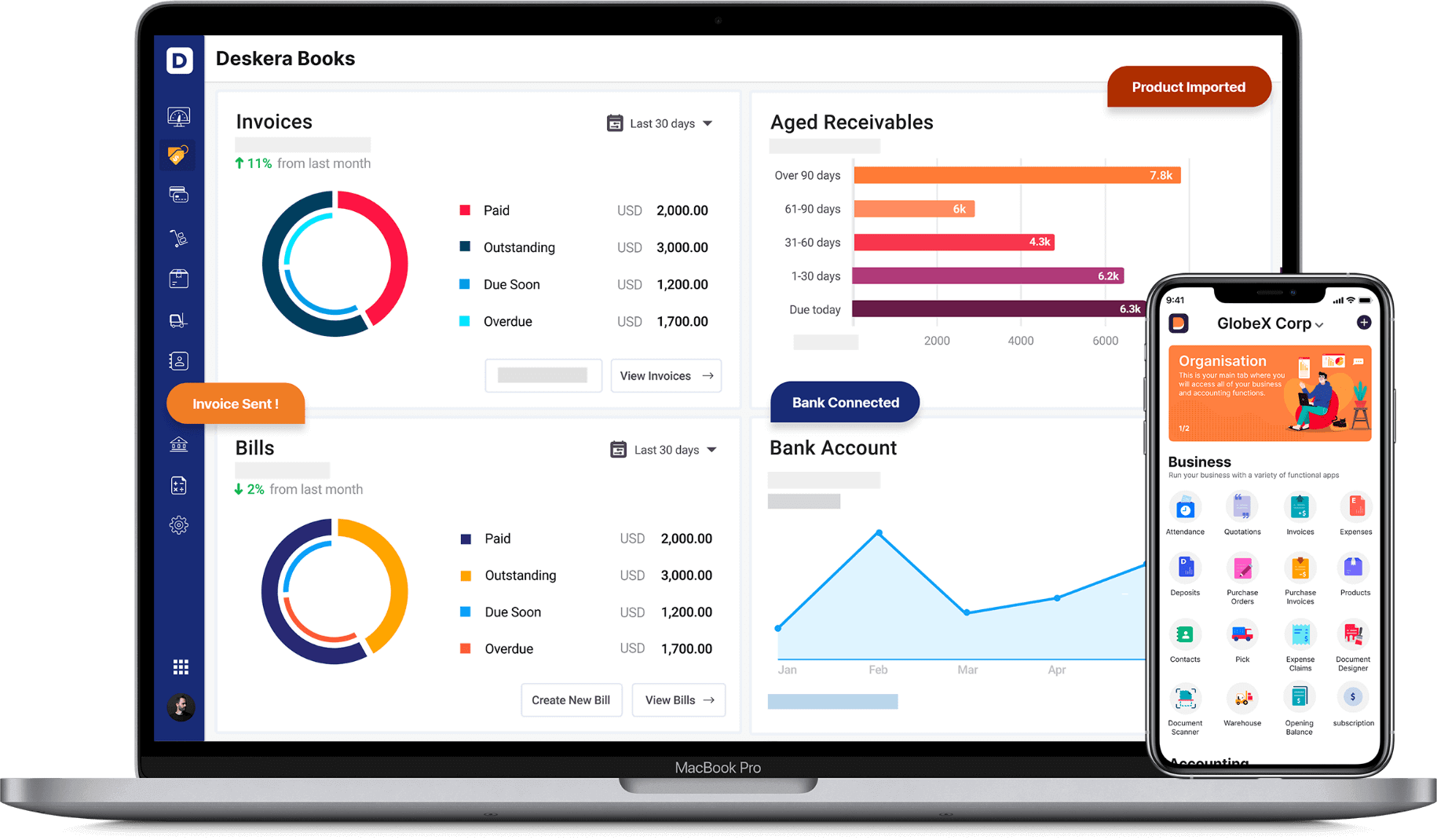Net income is a financial term that many people use but don't understand. It's fairly simple - net income is a company's income after all expenses are taken out. It's essentially the bottom line of a company. Companies will use this number to see whether the company made a profit for the period or not.
It can be hard for people new to the business to understand some of the terms are thrown around. Net income is a prime example of this. It's one of the most basic financial terms, but it's not very easy to understand. This blog will look at net income and how it's calculated.
- Layman's definition of Net Income
- What Is the Difference Between Net Income and Gross Income?
- How To Calculate Net Income?
- How Does Net Income Apply to a Business?
- How to Calculate Net Income Using the Formula Approach?
- How to Calculate Net Income Using Double-Entry Bookkeeping?
- What Are the Pros and Cons of Calculating Net Income?
Layman's definition of Net Income
Net income is the amount of money left over after you've subtracted all your expenses from all the revenue your business earns. The amount of revenue you earn from the sale of your goods and services is then subtracted from the number of expenses you have for that revenue. This amount will be called your profit, and if it is positive, it will be called net income. Net income is listed on the income statement, which lists all the sources of revenue and the expenses for a given period.
What Is the Difference Between Net Income and Gross Income?
Net income is the amount of money that exceeds expenses and taxes during a financial year. Gross income is simply the amount of money someone earns before taxes are taken out. You can find your net income by totaling the gross income and subtracting the cost of goods sold operating expenses, depreciation, and other costs. The figure may not be the same as net income, depending on the tax structure in a particular country.
Gross income is the amount earned from the sale of goods and services. The gross income does not include the cost of goods sold. For example, if you run a lemonade stand and make $39.55 over an hour, you have made $39.55 of income. Gross income is all the income earned by a company, even including expenses.
In other words, net income is income after expenses. It is the revenue that a company or business has before deducting the expenses. In other words, net income is the gross income minus income tax, interest expense, depreciation, and amortization.
How To Calculate Net Income?
Net income is a powerful business tool that can help you in many ways. It allows you to compare the hot dogs you sell with buns to the hot dogs you sell. If you are trying to make a profit, you should be knowledgeable in this subject. Here are the basics of calculating net income:
1. Add up all of your income for the month
2. Subtract all of your expenses for the month
3. Subtract taxes
4. Divide your result by the number of months that you have been in business
5. Add any miscellaneous income that you have had
6. Using a computer, you can type your figures into an appropriate program
How Does Net Income Apply to a Business?
Net income is the amount of income a business earns after expenses have been deducted. Net income is often called the bottom line. This is what is left over once all expenses are paid. The expenses are subtracted from the income to arrive at net income for the year. The net income can be represented as a positive or negative number.
The positive would be after all expenses were paid. The negative would be if expenses were greater than income. For example, if a business has $40,000 in total expenses and $30,000 income in a year, the net income will be negative or -$10,000. If that occurs in the next year, the business is losing money.
How to Calculate Net Income Using the Formula Approach?
Knowing how to calculate net income can help you make important financial decisions to help you grow your business. The net income formula allows you to understand what your business's profit is. To calculate net income for a company, use the formula approach.
To build a net income formula, you need to understand the income statement. The income statement is the financial document that firms use to list a business's revenues, costs, and expenses over a given period. When you calculate net income, you need to subtract the costs from the revenues to figure out how much money your business made over a given period.
There are a few ways to calculate net income. You can use the simple formula approach, or you can use the detailed approach.
Net Income = Gross Income - Expenses Gross Income = Total Revenue - Total Expenses Expenses = Total expenses - Total sales tax
- Net Income = (Revenue - Expenses) Win
- But wait, what do we do if we have an inflow or outflow of cash?
- When there's an inflow of cash, we add it to the revenue
- When there's an outflow of cash, we add it to the expenses
- Net Income = (Revenue + Inflows of Cash - Outflows of Cash)
So easy that a caveman can do it!
How to Calculate Net Income Using Double-Entry Bookkeeping?
When it comes to double-entry bookkeeping, you must use the rules of debit and credit correctly. If you are unfamiliar with the rules surrounding credits, debits, and account balances, the process can be a little confusing. This is why all accountants and financial professionals must follow particular steps to ensure that the financial records are correct. Here are the steps you need to take to calculate net income using double-entry bookkeeping.
First, you need to keep track of the balance of your assets and liabilities whenever you make a sale. After you sell your product, you will have to subtract the costs from the income and write down the difference in your journal. If the difference is positive, you will want to record that in your assets because it's profit. If the difference is negative, you will want to record it in your liabilities. This is all part of the record-keeping process.
The seven easy steps to calculate net income are
Step 1: List the Assets
Step 2: List the Liabilities
Step 3: Calculate the Net Income
Step 4: List the Equity
Step 5: Make the Calculations
Step 6: List the Net Income Statement
Step 7: Completing the Statement
What Are the Pros and Cons of Calculating Net Income?
Net income is calculated as revenue minus costs. The formula is as follows:
Net Income = Revenue – Expenses.
Net income is also commonly referred to as net earnings or net profit.
Pros:
1. People can compare revenue to net income for different time periods to see the profits made by a company, which is useful for financial planning
2. Net income can be used to find out if a company is profitable and whether it has increased or decreased from a previous period
Cons:
1. Net income does not consider non-monetary costs, for example, the cost of labor and capital involved in the production
2. Because of this, net income may not have the same value as net assets or book value, which both consider the cost of capital
How can Deskera Help You?
Managing finances and calculating the deductions is a tough task and requires you to keep all your documents handy. Let an automated accounting system take care of it.
Deskera Books is comprehensive accounting software that can help you manage your finances.
It helps you manage your profit loss statement, work on invoicing, general ledger, balance sheets. It also helps you automate your financial records and keep track of them online.

Learn about the exceptional and all-in-one software here:
Conclusion
When you make decisions about your business, it helps to know how to calculate net income. Net income is a key metric that indicates a company's financial health. It is calculated by subtracting operating costs from revenue. Net income is also called profit, net earnings, and net earnings.
In the case of unincorporated businesses, you simply subtract all your business expenses from all your business income. You need to be very careful about accounting for all expenses and revenues for incorporated businesses. You have to make sure you are not double including any income or expenses.
There are also certain deductions that you can make to reduce your company's net income. Net income is a figure that is reported to shareholders and potential investors. They want to see a company's net income to determine if the company is a profitable investment. We hope you found this blog useful. If you have any other questions, queries, or concerns about net income, do mention them in the comments section, and we will get back to you.
Key Takeaways
- Net income is the amount of money that exceeds expenses and taxes during a financial year
- The expenses are subtracted from the income to arrive at net income for the year
- Net Income can be calculated using the formula Net Income = Gross Income - Expenses Gross Income = Total Revenue - Total Expenses Expenses = Total expenses - Total sales tax
- Net income can be used to find out if a company is profitable and whether it has increased or decreased from a previous period
- Net income does not consider non-monetary costs, for example, the cost of labor and capital involved in the production
Related Articles











